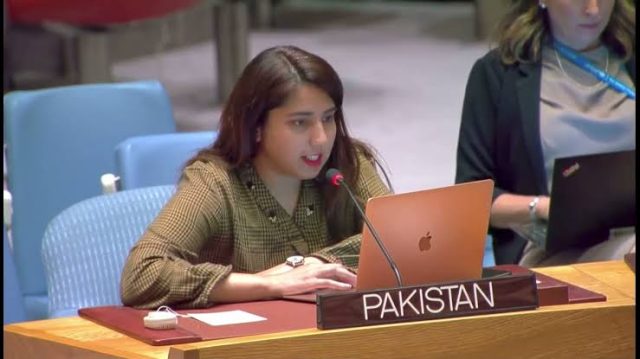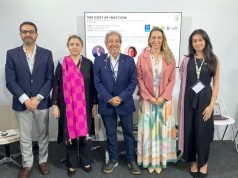UNITED NATIONS, Wednesday, July 2, 2025 (WNP): A Pakistani delegate strongly rebutted India’s accusations regarding the treatment of minorities in Pakistan, calling the claims “a textbook case of the perpetrator posturing as a victim,” during a debate on the Responsibility to Protect (R2P) at the UN General Assembly.
Responding to remarks made by an Indian representative, Rabia Ijaz, Second Secretary at Pakistan’s Mission to the UN, accused India of turning into a “majoritarian autocracy” under the ruling BJP-RSS alliance, where hate has been weaponized, mob violence normalized, and discrimination codified.
“A state that has weaponized hate, normalized mob violence, and codified discrimination against its own citizens – and against those it occupies – has no moral standing to speak on the Responsibility to Protect,” she said, referring to India.
The remarks came after Pakistan’s Deputy Permanent Representative, Ambassador Usman Jadoon, sharply criticized the selective and politicized use of the R2P doctrine during the General Assembly debate. He noted the international community’s failure to prevent mass atrocities in occupied Palestine and Kashmir, arguing that such inaction has rendered the doctrine “meaningless.”
In a right of reply to India’s statement accusing Pakistan of minority rights violations and involvement in the recent Pahalgam attack in Indian-occupied Kashmir, Ms. Ijaz denounced the allegations as baseless and hypocritical.
“Under the BJP-RSS regime, all minorities in India—Muslims, Christians, and Dalits—live under siege,” she stated. “Lynching is met with silence, bulldozers are used as tools of collective punishment, mosques are razed, and citizenship is denied based on religion. This is not protection—it is persecution, sanctified by law and celebrated by power.”
Dismissing India’s claim that Jammu and Kashmir is its “integral part,” the Pakistani delegate called it “pure political and legal fiction.” She underscored that the UN recognizes Jammu and Kashmir as a disputed territory, and that UN Security Council resolutions affirm the right of the Kashmiri people to determine their future through a free and impartial plebiscite.
“India not only accepted these obligations — it is bound by Article 25 of the UN Charter to comply. Its refusal to do so is a continuing violation of international law,” she emphasized.
Ms. Ijaz also accused India of launching a recent unprovoked attack on civilian areas inside Pakistan, resulting in the deaths of 35 innocent civilians.
Referring to acts of terrorism on Pakistani soil, she cited the 2014 Army Public School massacre and a recent school bus attack in Khuzdar, asserting that both bore the “fingerprints of Indian intelligence agencies.”
“Through its support to TTP and BLA, India continues to wage a covert war against Pakistan,” she added.
Ms. Ijaz concluded her statement by warning against the misuse of the R2P doctrine by states with poor human rights records. “R2P cannot become a slogan for serial violators to hide behind. It cannot be invoked by those who deny rights at home and export chaos abroad. If the international community is serious about protection, then it must first protect vulnerable populations from the very states that are the perpetrators — including India.”
The exchange reflects the continued diplomatic tensions between India and Pakistan, particularly over the longstanding Kashmir dispute and allegations of cross-border terrorism and human rights abuses.




